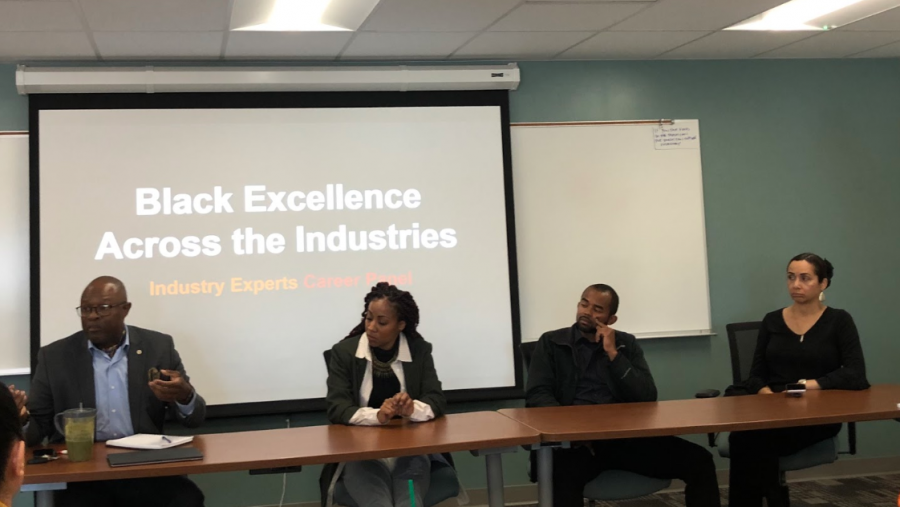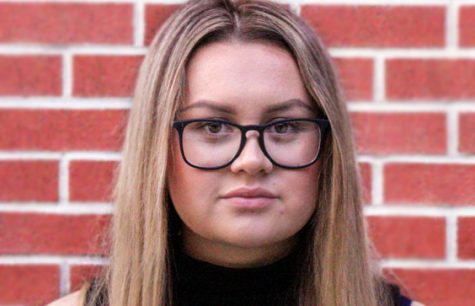Transfer and Career Center holds industry panel to discuss black excellence
Panelists discuss hardships and overcoming the challenges of being an individual of color in the workforce
(Left to right) Michael Taylor, Brisa Johnson, Jayton Harps, and Deme Hall, discusses black excellence during the industry panel. Photo by: Elisabeth Vermeulen/City Times
February 27, 2020
As Black History Month commemoration continues, the Transfer and Career Center held an Industry Career Panel discussing the topic of black excellence.
“It was really important for me to find representatives from industries that are not heavily represented by African Americans,” job placement coordinator and event organizer Sasha Knox said.
The intention of the panel was to not only acknowledge the barriers that African Americans face in the workforce, but to also show that overcoming these challenges are possible. These panelists proved this.
Jayton Harps, a software integration engineer at Northrop Grumman, said, “When we talk about black excellence, we’re talking about how far we’ve come.”
President of NWB Environmental Services Michael Taylor shared with students how he pushed himself to excel despite the challenges. Being a man of color, he always felt the need to work harder than anyone else in the room.
“That’s kind of what black excellence looks like,” Taylor said. “My way of tackling this is understanding that I have thousands of ancestors walking with me and through that, I know that I belong in any space that I enter into.”
Government and social services specialist Deme Hill had a similar experience to share.
Hill was one of the first to graduate in her family. Her father was in the military and her mother graduated from the Job Corps.
“I wanted to show other people that you can do it, being a woman and a minority, and pushing through all the boundaries,” Hill said, “and it took me a very long time to get here, but you know what? I am living proof that you could do it.”
“W.E.B. Du Bois called it ‘the talented tenth,’” Hill said. The term is used to describe the likelihood of one in ten black men becoming leaders through education, books or social changes.
Books were just the answers for Brisa Johnson, a civic engagement director with United Domestic Workers.
“I felt like showing up black was illegal,” Johnson said. “I had to hear narratives that are rooted in racism and rooted in white supremacy. Where they are saying things that are so blatantly normal to them, and are completely degrading to who I am as an individual. It’s so second nature to them.”
It wasn’t until Johnson fell in love with black studies and decided to surround herself with black culture which then taught her to embrace her worth and value.
“I knew it was them that was programmed, it wasn’t me, I had already broken those chains. I broke those chains everytime I picked up a new black studies book, I broke those chains everytime I had a conversation with another black woman, I broke those chains every time I got to learn another black person’s story, so when I got into these professional spaces, I knew ‘oh y’all still locked up, y’all still got chains in your minds,” said Johnson. “When you know who you are, you’re ten times more successful.”











